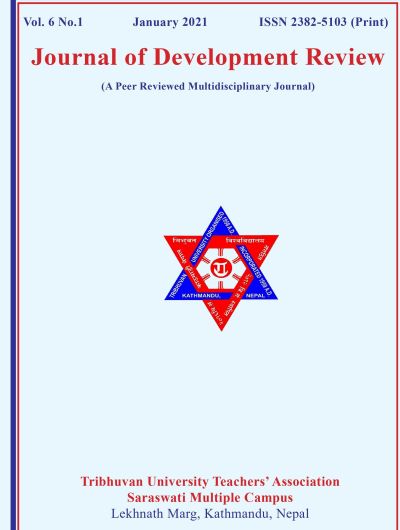Practices of Capital Budgeting for Industrial Development in Nepal: A Study of Beverages Industries
DOI:
https://doi.org/10.3126/jdr.v6i01.66913Keywords:
capital budgeting,, NCO, NPV, ARR, FDI, industrial development, PBP, IRRAbstract
Nepal is a birth place of Lord Buddha and small landlocked country of Asia. Being a landlocked country, the sea access is about 1150 kilometer from the boarder and wedged between two economic power of Asia; China in the North side separated by the Himalayans with 1236 kilometer and India in the South, East & West side with open boarder of 1690 kilometer. Capital budgeting is a process of planning of capital expenditure which is to be made to maximize the long term profitability of the organization. Expenditure made with a view to reap extra benefits over a long period is regarded as capital expenditure. It incurred for acquisition, expansion and modification of fixed assets; research & development expenditure for product development and cost reduction; expenditure incurred in compliance to statutory regulation as to labour, social welfare & environmental issues are major forms of capital expenditure. On the way of completion of the study and achieving the mentioned objectives, we have selected two beverages companies as a sample of the study “Practices of Capital Budgeting for Industrial Development in Nepal; A Study of Beverages Industries”. One of the sample companies is Sunrise Nepal Food & Beverages Pvt. Ltd., (A Franchisee of Parle Agro Pvt. Ltd., India) and another sample company is Birgunj Pure Drinking Water Udyog. This study focused on Initial Investment, Pay Back Period (PBP), Accounting Rate of Return (ARR), Cost of Capital, Net Present Value (NPV), Internal Rate of Return (IRR), Profitability Index (PI) and Chi-squire test of the data
provided by the management of the sample companies.




